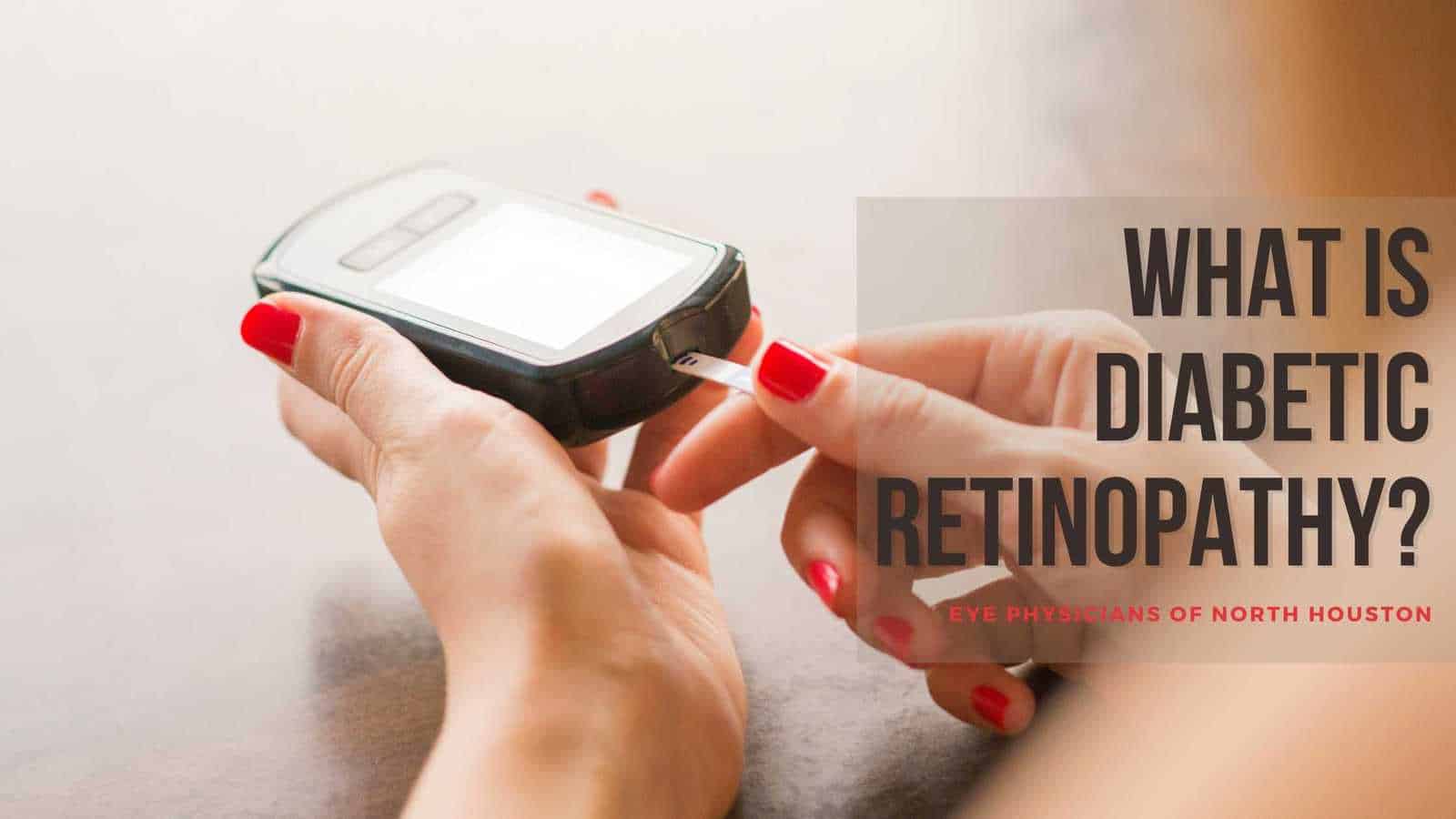If you are among the 34.2 million U.S. adults who have been diagnosed with any diabetes – Type 1, Type 2, or gestational – your body either makes an insufficient amount of insulin or improperly uses its production. That can affect how your body turns food into energy, potentially impacting your overall and eye health.
Diabetes puts you at greater risk for developing cataracts, diabetic retinopathy (DR), and glaucoma. Of these three eye diseases, DR is the most common, affecting more than 7.7 million adults. The National Eye Institute expects that number, from 2010, to nearly double by 2050.
Diabetic retinopathy is a leading cause of permanent vision loss. Therefore, it is vital to schedule routine eye exams with an ophthalmologist in Houston, especially since symptoms are often not noticeable until the condition’s progression from non-proliferative (NPDR) to proliferative (PDR).
The two stages of diabetic retinopathy are:
Early Stage (NPDR)
Also known as background diabetic retinopathy, NPDR is the early, more common stage of DR. It is characterized by microscopic spots of bleeding in and around the fovea, the center of the retina responsible for good vision resulting in blurry vision. In poorly controlled diabetes, the severity of retinal bleeding worsens over time and, if left untreated, can progress to proliferative DR.
Advanced Stage (PDR)
PDR is the more advanced stage of DR, resulting from new, fragile blood vessels in the retina. These vessels can bleed into the vitreous humor, a fluid that fills the middle of the eye. That can lead to retinal scarring, further compromising your vision and potentially leading to vision-threatening retinal detachment. The goal of routine eye exams is to prevent, identify, and treat vision-threatening eye conditions.
Common symptoms during this stage include:
- Eye flashes and floaters
- Trouble seeing colors
- Blind spots
- Blurry vision
- Vision loss
Diagnosing Vision-Impacting Eye Conditions
When it comes to your eye health, early detection of diabetic retinopathy and other diseases is essential for preventing vision loss, making it crucial to schedule routine eye exams with an ophthalmologist in Houston.
The National Eye Institute (NIH) recommends scheduling dilated eye exams every one to two years, depending on your age and overall health, more often if you are at risk for vision-impacting conditions. Common risk factors for DR include a medical diagnosis or family history of diabetes – regardless of type, hypertension, hyperlipidemia, and hyperglycemia. The risk of developing eye conditions may also increase with age or tobacco use.
The ophthalmologist will give you some eye drops to dilate your pupil during your appointment, allowing the doctor to check for early signs of eye diseases like diabetic retionpathy, mitigating the potential for vision loss.
In addition to dilating your pupils, your eye doctor will perform other tests, depending on your overall eye health. Typically, most comprehensive eye exams include testing your visual acuity, visual field, eye muscle function, pupil response, and eye pressure. However, more tests may be ordered should the eye doctor find anything during your appointment or address any concerns you may have.
Preventing Diabetic Retinopathy and Other Diseases
Besides getting comprehensive eye exams, the best way to protect your eye health and prevent vision loss is to make simple changes to your lifestyle. That includes maintaining a healthy weight, eating a balanced diet, limiting processed foods, and being physically active.
The goal here is to manage your diabetes by ensuring your blood sugar levels are within a healthy range. Other things you can do to prevent or delay the progression of eye diseases include safeguarding your eyes from the sun’s harmful ultraviolet rays and, if applicable, the cessation of smoking.
Using only the most advanced technologies and techniques, the board-certified ophthalmologists at Eye Physicians of North Houston provide compassionate, comprehensive patient-centered eye care in Houston.
Our conveniently located ophthalmology practice, open Monday through Friday from 8:00 am to 5:00 pm, welcomes more than 15,000 patient visits each year. We invite you to schedule a dilated eye exam with one of our ophthalmologists in Houston at (281) 893-1760.
Resources:
“Diabetic Retinopathy.” National Eye Institute (NIH).
“Diabetic Retinopathy Data and Statistics.” National Eye Institute (NIH).
“Get a Dilated Eye Exam.” National Eye Institute (NIH).
“What is Diabetes?” Centers for Disease Control and Prevention (CDC).
“What is Diabetic Retinopathy?” American Academy of Ophthalmology (AAO).

